Determining what weeds an herbicide will kill can sometimes be confusing. Do you want to try using Roundup on the creeping Charlie growing throughout your lawn or landscape but don't know if it will work? Is Roundup good for all types of weeds?
Luckily, we have extensively researched this topic and have the answers below!
If you want to use Roundup to kill creeping Charlie in your garden, we recommend the 'Roundup® Ready-To-Use Weed & Grass Killer.' Not only can this herbicide target and kill creeping Charlie, but it also works to prevent the pesky plant from returning.
Furthermore, Roundup makes a 'Sure Shot® Wand' to kill creeping Charlie down to the root, so that's another product from the brand you can use to help solve the problem.
As we start this article, we will cover all things creeping Charlie and discuss whether Roundup works to kill it. If you have a weed infestation, can't find the right herbicide, or have additional questions, we're here to help. With that said, let's dive right into this topic and figure things out!
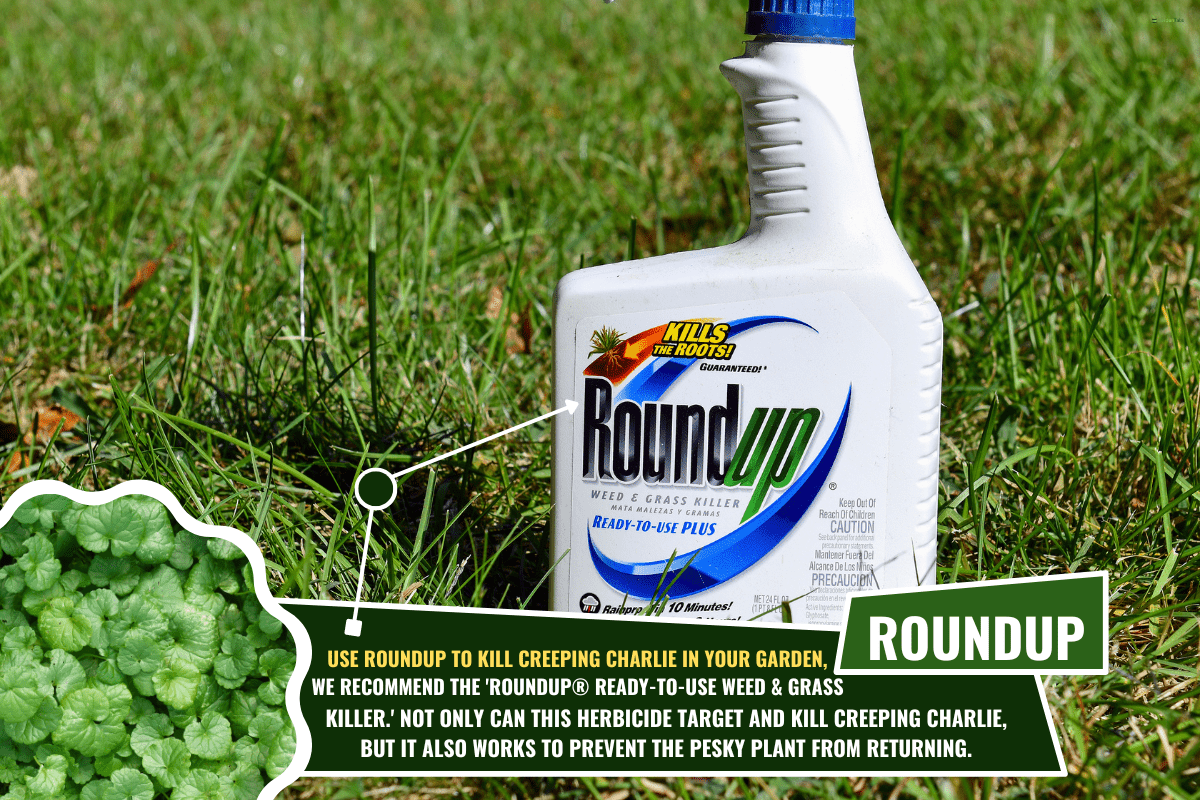
Will Roundup Work On Creeping Charlie?
Yes! As long as you use the brand's targeted Ready-To-Use Weed & Grass Killer, you should be able to get rid of the creeping Charlie in your landscape.
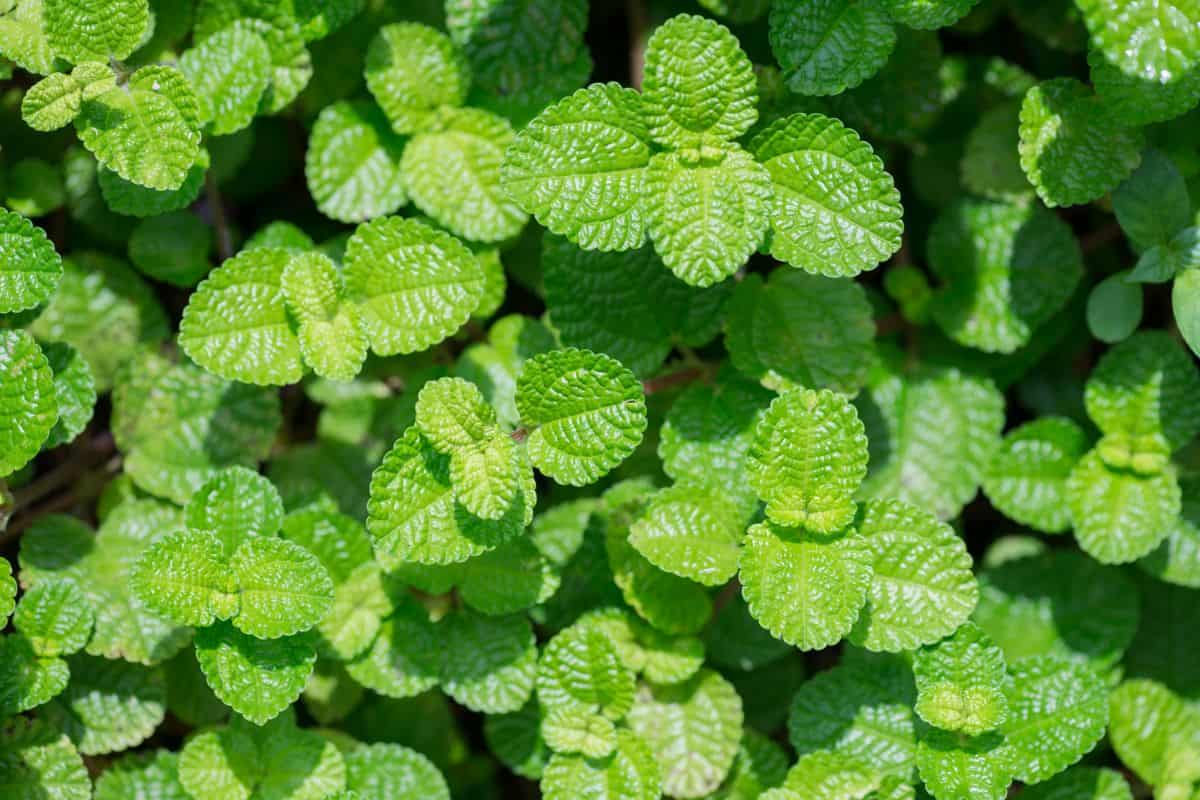
This formula targets common lawn weeds, specifically creeping Charlie, so it will kill that weed species. Furthermore, Roundup makes a Sure Shot Wand, which you can use to apply the product in your yard.
Sometimes, it's better to have a precise application for creeping Charlie, as this weed can be peskier than others. Using the wand ensures your herbicide will make contact with the stems, leaves, and ground of your creeping Charlie: essential to kill it.
According to the brand's website, their Ready-To-Use Weed & Grass Killer should start working the minute it touches creeping Charlie, so expect pretty fast results.
How Long Does It Take For Roundup To Kill Creeping Charlie?
You want to allow Roundup to sit on creeping Charlie for 12 hours to see it start working. However, many experts claim that letting your herbicide sit on the leaves/surface of the weed for closer to 24 hours will result in a better killing.
As we said above, Roundup is compatible with common lawn weeds, like creeping Charlie, so your product will effectively kill and prevent it.
If you don't give your Roundup plenty of time to seep into the weed you apply it to; your result may be lackluster. Typically, the longer an herbicide can sit on a weed, the faster and better it will work.
Once that 12-24 hour period passes, your Roundup should begin killing the creeping Charlie over the next few days. Since the Roundup line of products is so potent, many gardeners witness their weeds dead the next day or within a week post-application.
So, we recommend keeping your weed/the surrounding area dry for at least 12 hours and spraying it with a precise amount of herbicide.
Roundup Ready-To-Use Weed & Grass Killer With Sure Shot Wand
This herbicide is fast-acting, kills existing weeds and grass down to its root, works in vegetable and flower gardens, has a precise applicator wand, is rainproof in ten minutes, and promises visible results in three hours.
Follow this link to view it on Amazon.
What Is The Best Way To Get Rid Of Creeping Charlie?
One of the most effective ways to eliminate creeping Charlie in your garden would be using a broadleaf herbicide. For example, Roundup is a broader-coverage product, as it attacks various weeds.
In addition, you may want to look for herbicides that contain triclopyr, generally in combination with 2, 4-D, and Dicamba. These active ingredients can work especially well to target and kill creeping Charlie.
If you use an herbicide without these key ingredients, there's a chance it will not work as well. As we said, creeping Charlie can be persistent, often returning after you kill it.
Therefore, you need to find a product with long-lasting results to keep the roots of creeping Charlie dead below the ground's surface. Sometimes, weaker products only target the above-ground sections of weeds, which deems them useless long-term.
How Do You Stop Creeping Charlie From Spreading?
There are many ways to stop spreading for those struggling with a creeping Charlie invasion. Generally, you want to find the source of the infestation (the parent plant).
You can cut the weed down to its stem and pull the entire creeping Charlie from the soil. Next, find any similar/related weeds nearby and do the same thing.
You want to be as precise as possible to keep the creeping Charlie from coming back. Experts recommend thoroughly rinsing the soil where you pull weeds to ensure the land left behind doesn't contain any remaining roots or plants.
With that said, if you previously sprayed your creeping Charlie but don't want to wait any longer, make sure to put on gloves when trimming and pulling them by hand.
Since Roundup is a powerful herbicide, its ingredients can cause your skin to become irritated.
It's always better to be safe than sorry.
Will Roundup Kill Creeping Charlie And My Lawn?
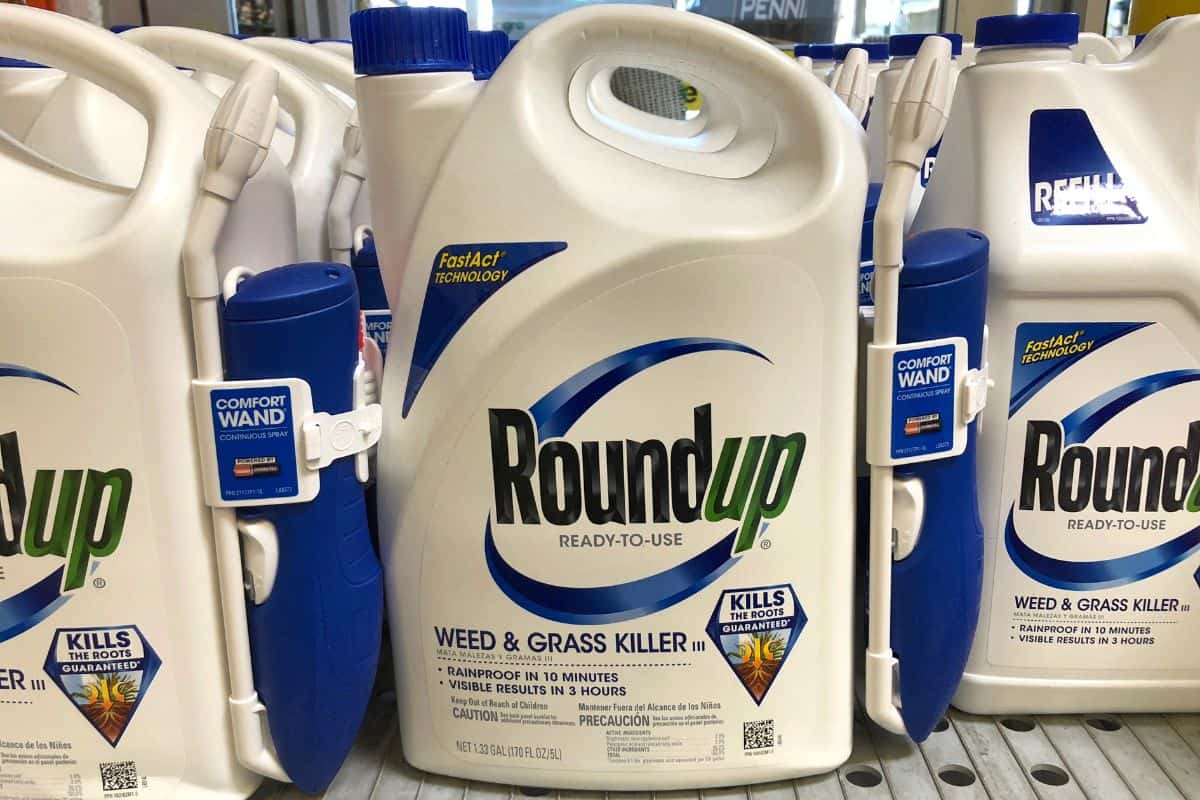
Since Roundup contains incredibly potent chemicals, it is common to see sections around your lawn become affected after you apply it. Typically, grass and weeds will die anywhere you spray your herbicide.
Although this isn't always the case for turf grass, due to Roundup's formula, it can negatively affect other healthy areas within your garden if you apply it too vigorously.
Therefore, it might be a good idea to use the applicator wand we mentioned earlier, so you're only killing the creeping Charlie: not the rest of your beautiful grass.
According to garden pros, if you use an herbicide with Triclopyr, 2,4-D, and Dicamba, your remaining turf grass should not be affected. Again, Roundup contains some of these ingredients, but it also has other chemicals that kill whatever they touch.
So, the more precise with your application, the better chance your turf grass will survive the spray.
When Should I Treat My Lawn For Creeping Charlie?
For those struggling with creeping Charlie in their grass, you want to wait to spray until the weeds are actively growing. According to the University of Wisconsin-Madison, spraying your lawn with a broadleaf herbicide is generally best during mid-late autumn.
They focus on using your Roundup/herbicide after the first frost to ensure the product makes its way into your weed's roots and leaves.
As we said above, you need to let your product sit on your weed for 12-24 hours. During that period, the chemicals will seep into the creeping Charlie, essentially activating inside the weed.
From there, your pesky plant will die from the inside out, eventually down to the root system.
Depending on your climate, you may be able to use Roundup more often throughout the four seasons, but regardless, try to do this when there is no snow or rain in the upcoming forecast.
Does Roundup Kill All Weeds?
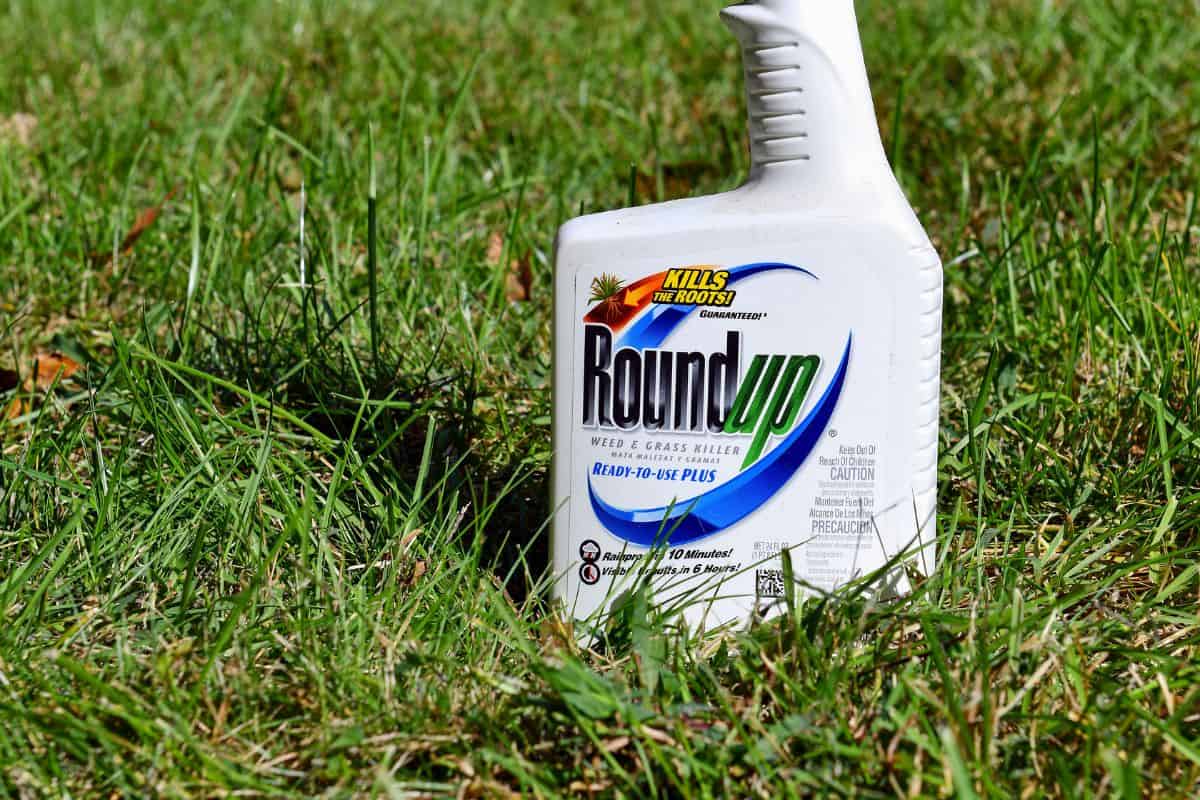
Technically, yes, Roundup does kill all weeds. That's because the formula in Roundup contains potent chemicals that target whatever plant they touch.
One of the main ingredients in Roundup herbicides is glyphosate. This chemical essentially targets your weed/grass from a cellular level, blocking further growth and killing the entire organism it penetrates.
According to experts, Roundup can be considered a "non-selective" herbicide. That means it doesn't discriminate and will kill whatever you apply it to.
As we mentioned, that can become an issue for healthy turf grass or other growing vegetation nearby, so try and be as precise as possible when using this product.
So, if you want to kill creeping Charlie, you'll have success with Roundup: although that could become a bigger problem if you spray too much product around your weed.
Will Weeds Grow Back After Roundup?
Applying Roundup usually prevents weeds from returning for 4-12 months per application. Since your herbicide targets the root systems of the plants it kills, it seeps into the soil.
Therefore, applying Roundup to a large portion of your garden can result in a dead zone for the next few months, if not years. Sometimes, the stronger and better working an herbicide, the more negative side effects it will have.
According to Cornell University, it can take upwards of 174 days for even half the product to break down in the soil. Roundup is incredibly powerful, which can be a blessing and a curse.
So, if you spray your creeping Charlie with it, we recommend using very little product and monitoring the surrounding sections of the land.
That goes for most chemical herbicide products, so whatever you spray will become a dead zone for the foreseeable future.
Is Creeping Charlie Hard To Get Rid Of?
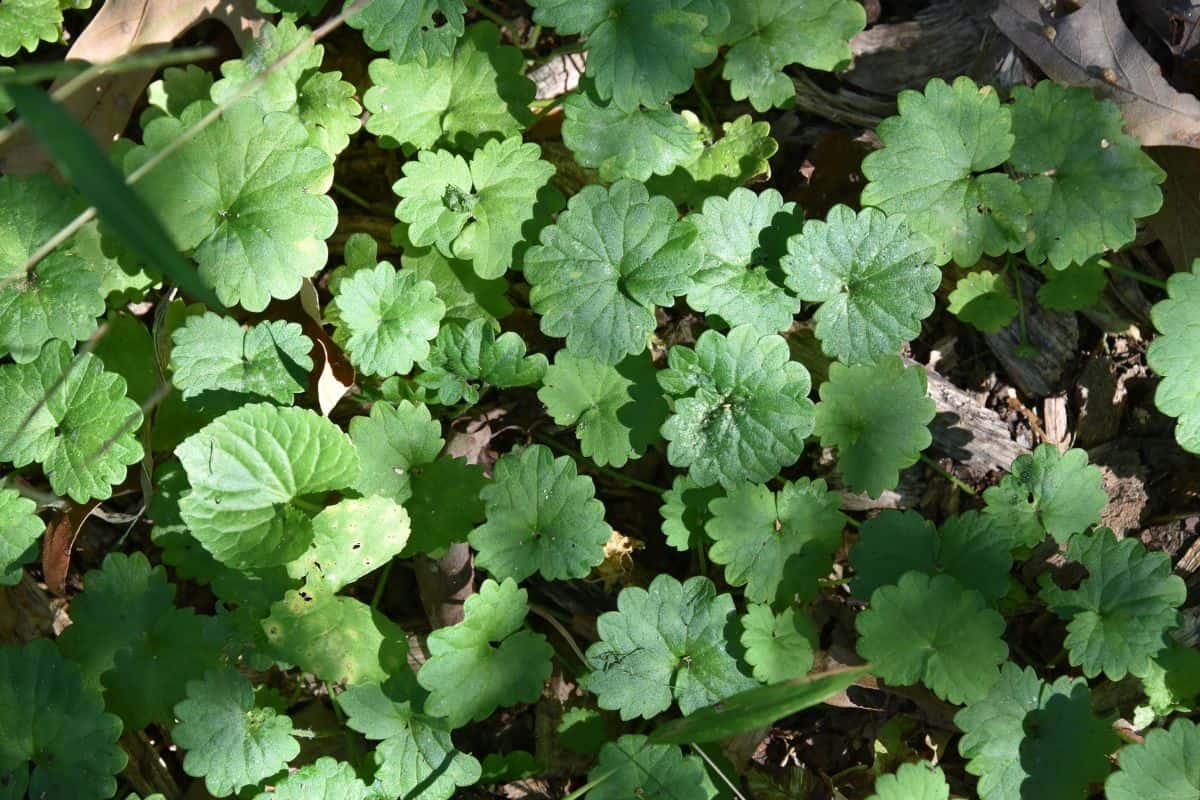
Although creeping Charlie can be tricky to get rid of, this isn't impossible. As long as you use a strong, targeted herbicide, your weeds should die off within the next week or so.
Especially when using Roundup, you can expect creeping Charlie to stop spreading and eventually die within days depending on the application and conditions.
Remember, as long as you kill the weeds of creeping Charlie, your plant shouldn't be able to return.
To Finish It Up
Whether you have weeds overpowering your landscape or noticed one, in particular, it's essential to find the right herbicide. From what we found, Roundup does kill creeping Charlie and targets the weed's roots and growing enzymes all in a day.
In general, creeping Charlie will respond well to Roundup products, often showing signs of progress within three hours post-spray. However, Roundup is a non-selective herbicide, killing whatever you use it on. Be cautious of this in your garden, and use a wand if necessary!
Made it to the end? Check out these helpful related garden articles below:
Can You Spray Roundup At Night? [Or Does It Need Sunlight To Work?]
How To Use A Roundup Sprayer [And Troubleshooting If Not Working]

